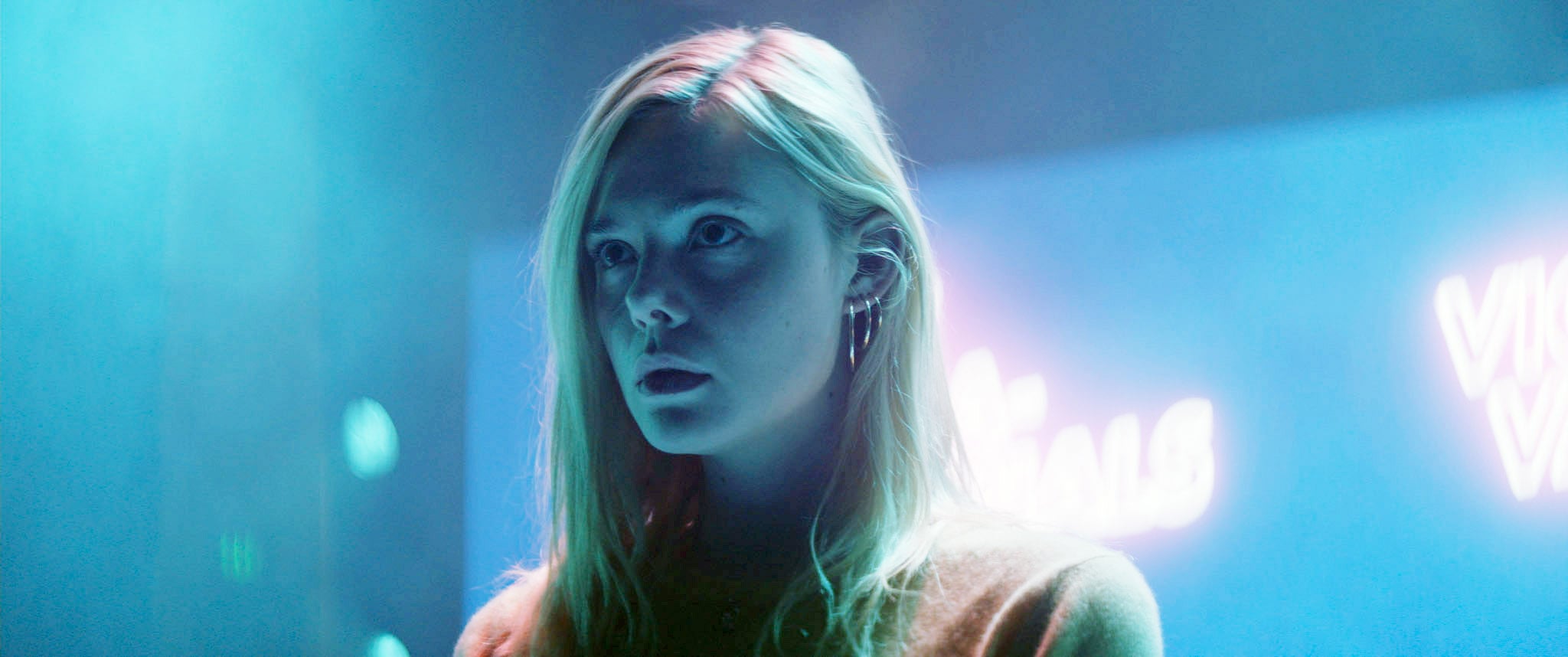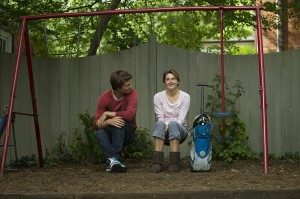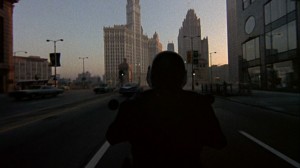
Teen Spirit is as close to a jukebox musical as you can get without committing to being one. There’s a Grimes song here, two Carly Rae Jepsen songs there, and some Robyn, Ellie Goulding, and Tegan and Sara tracks, most of which are sung by the film’s lead, Elle Fanning. The premise—Violet (Fanning) is a teen girl entering a competition that’s an odd amalgam of every network television show about finding the next icon in music—begs for stunning numbers, a compelling journey, and for energy flowing through its every bone. Director Max Minghella doesn’t deliver any of that.
The film is torn between being a lifeless “rise to stardom” drama and a pedestrian music video block from the early 2010s. Each performance (be it a rehearsal, an audition, or a live television show) is cut together out of an ungodly amount of amateurish concert footage that has no awareness of how to frame a musical number. They’re either compiled from an abundance of shots of Violet performing with no purpose, or montages of her life outside of her rise in music with no context, like a TV spot for the very ffilm we’re watching.
Violet isn’t so much a character as she is a blank slate pushed through the bones of a story. She has no interests, no soul, and no identity beyond singing and loving music. What few attempts at a back story exist are poorly developed because none of the supporting cast is given a reason for existing either. In fact, no relationship between Violet and anyone she’s paired with is interestingly written, save a few moments of humor that feel out of step with the film’s rather dreary tone. Her coach, played by Zlatko Burić, is an opera singer who falls in and out of her life without sany real care, and the few narrative beats he’s given are either forgotten or set aside as quickly as they appear.
If there is a saving grace, it’s Rebecca Hall as the agent trying to coax Violet into signing a contract. If last year’s Vox Lux was a Faustian tale through and through, with the devil always off screen, Hall takes a special level of glee in becoming the devil herself, leaning into a seductive reading of some of the film’s more flowery dialogue. But Minghella would rather slog through Teen Spirit than let anyone have a good time or show too much personality. It’s the kind of film that would rather passively mention opera than actually try to bring the energy, scale, structure, or artistry present in that art form into this film. The potential for discussing how opera’s grand emotions and pop music’s earnest vivacity can co-exist was sitting right in front of the filmmaker’s face, but no chance was taken.
Instead, Minghella seems comfortable creating the world’s laziest series of music videos, complete with an abundance of neon lighting and over-produced music. To say the “Wildflower” demo that wasn’t included on Jepsen’s E•MO•TION sounds better than the Fanning cover placed over the credits here isn’t a stretch. At one point, a faceless judge tells Violet she should have chosen a song that shows her range, and somehow the film spends every subsequent performance choosing to ignore that advice, settling for sleepy versions of pop hits instead.
It’s not just that Teen Spirit can’t escape the shadow of the pop music it’s covering. It’s that its director has no understanding of how to mount a show. He doesn’t care about providing any sensible choreography or exploring the nuances between shooting a small scale bar number versus a show in a massive concert venue. He doesn’t care about the difference between a natural singing voice and something Auto-Tuned beyond recognition, nor is he interested in why a young woman would be motivated to put herself on camera for millions to watch, to judge, and to sentence. If Max Minghella can’t be bothered to create an interesting character or film, why should an audience bother to care?
—
Directed by Max Minghella; written by Max Minghella; starring Elle Fanning, Zlatko Buric, Rebecca Hall, and Agnieszka Grochowska; 92 minutes.
Teen Spirit is now playing in theaters.



 Derek
Derek
 Isabelle
Isabelle